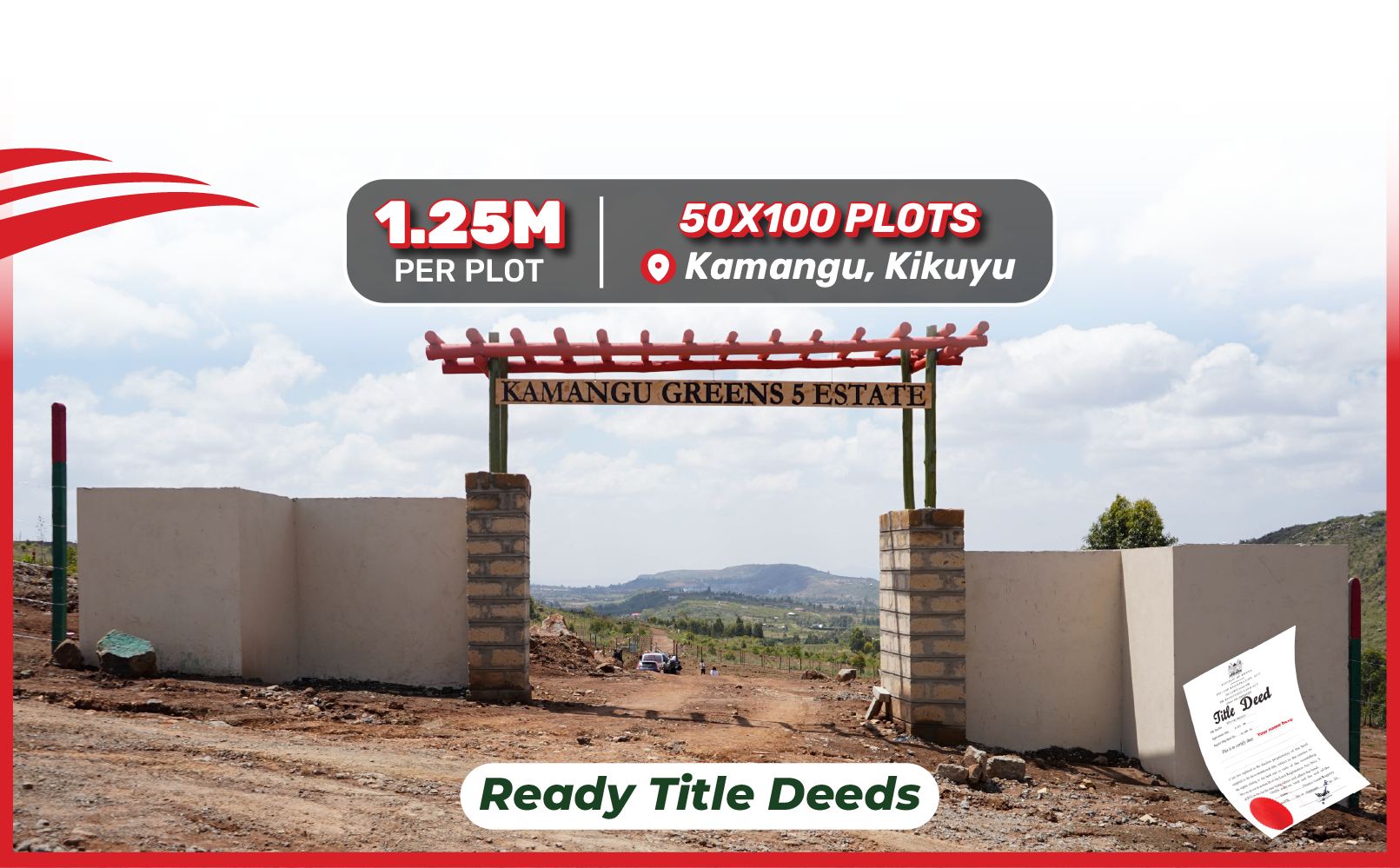7 Best Financing Options When it Comes to Investing in Land
When it comes to land investment, there are several financing options that are available that can also be followed should one decide to invest in land and be interested in knowing what options they might use.
Financing a land investment has been a major constraint for many land investors in Kenya, but with the right options and methods, it can be guaranteed.
Savings
This is the moment to exploit your personal savings and make them count and serve you for the exact reason that you initially saved them for.
It’s advisable to consolidate the required amount and pay instantly for land that interests you at the time.
This is basically because land prices and value appreciate with time, so if you don’t seize the moment and invest in that land, you might as well miss out by one taking it, or the price will have increased even further by double.
Institutional Lenders
Among institutional investors, local credit unions and community banks are more likely to offer loans to land investors.
To improve your chances, get your financial house in order beforehand. The loan amount is determined by the client’s credit score.
That means providing strong financial statements with assets well in excess of liabilities.
On the liability side, there should be limited liabilities, such as credit card debt, mortgage debt, and any loan obligations.
Seller Financing
One of the most popular ways to finance a land investment is to make an arrangement between the seller and the buyer.
The down payment for the seller’s (or owner’s) financing is typically higher.
Additionally, you can encounter longer payment schedules and higher interest rates.
For instance, if the seller consents to accept payments from you over a predetermined period of time to settle the cost of the land.
Despite these potential concerns, for investors who struggle with financing through more traditional options, seller financing might be a good fit.
This is an agreement between the buyer and the seller that is fair without having to involve other third parties. However, make sure to have your lawyer review any agreements and paperwork during the process.
The Small Business Administration (SBA)
This is an administration that offers a loan program that provides long-term, fixed-rate financing for real estate purchases.
It is designed for small businesses that are interested in purchasing commercial real estate.
Below is the breakdown of the loans:
50% comes from a participating lender.
40% comes from a local community development program.
10% serves as a down payment from the buyer (this can sometimes go up to 15%).
Joint groups like Chamas
A chama is a financial group of members that includes more than two members saving for a common goal.
They normally issue each one of them the money contributed by each individual in the group so that they can use it wisely as they prefer.
As a Chama member, you can use the money offered to you upon your turn in the system to purchase land. Or even better, you can borrow money as long as your membership history is excellent.
As someone who is looking to invest in land, you should probably join a land club since they will understand your plan and fully support it. This could save you a lot of time.
READ: INVESTING WITH A GROUP (CHAMA,SACCO) IN KENYA

Farm Credit System
This is basically a nationwide network of borrower-owned lending institutions that provide credit to farmers and ranchers.
It is also another financing option within the federal government provided by the Farm Credit Bureau, which is an independent agency that provides real estate loans.
The advantages of working with this type of lender are that they have investors who can offer deep insight and guidance, especially if you are new to the group.
Retirement Accounts
This is a plan that helps one set aside money to be spent after retirement.
This can be a great plan and way to get money for investing in land. Some investors tap their retirement savings as another source of funds for a land purchase.
Plan administrators might let you borrow against your 401,000, but there are limits. The maximum borrowable amount is typically up to 50% of your savings.
Borrowing from a self-directed IRA is also available thanks to the Employee Retirement Income Security Act of 1974.
Although, if you’re thinking about pursuing this route, check with retirement and tax professionals to go over any potential long-term impacts and tax implications so that you fully know what you are signing into.
When considering the types of financing available to you for land investments, it’s best to shop around and secure the best possible and most flexible financing terms, such as the interest rate and term of the loan.
For any other land matter that you may need clarification on, consider reaching us via +254 701 293 199.





